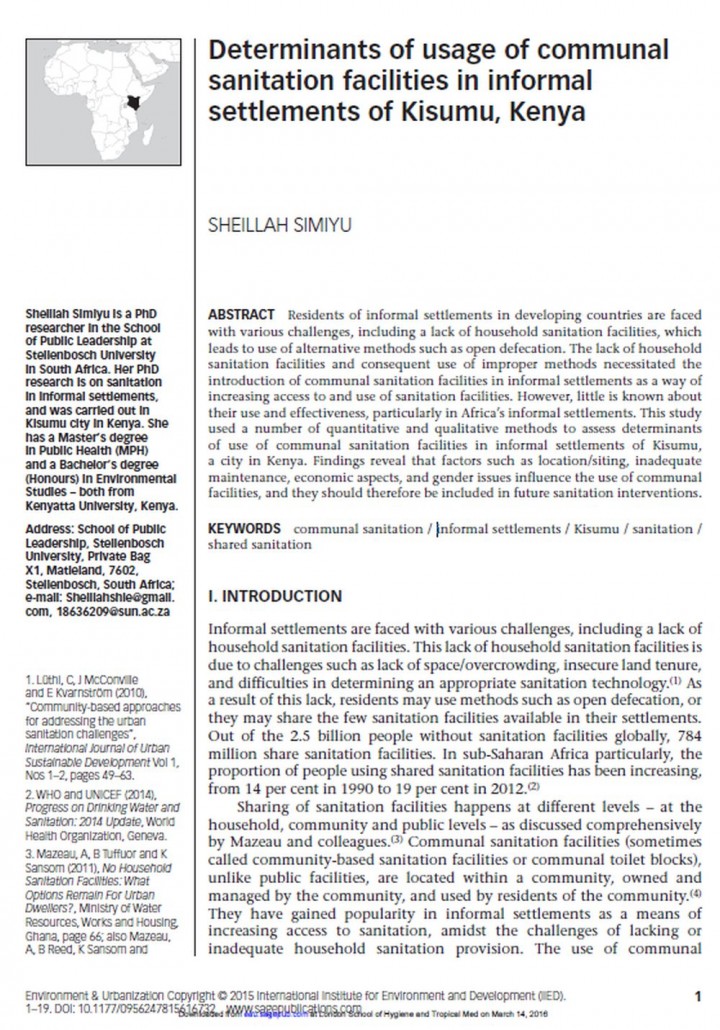Determinants of usage of communal sanitation facilities in informal settlements of Kisumu, Kenya Simiyu, S. (2016)
Residents of informal settlements in developing countries are faced with various challenges, including a lack of household sanitation facilities, which leads to use of alternative methods such as open defecation. The lack of household sanitation facilities and consequent use of improper methods necessitated the introduction of communal sanitation facilities in informal settlements as a way of increasing access to and use of sanitation facilities. However, little is known about their use and effectiveness, particularly in Africa’s informal settlements. This study used a number of quantitative and qualitative methods to assess determinants of use of communal sanitation facilities in informal settlements of Kisumu, a city in Kenya. Findings reveal that factors such as location/siting, inadequate maintenance, economic aspects, and gender issues influence the use of communal
facilities, and they should therefore be included in future sanitation interventions.
Bibliographic information
Simiyu, S. (2016). Determinants of usage of communal sanitation facilities in informal settlements of Kisumu, Kenya London School of Hygiene and Tropical Medicine; Sanitation and Hygiene Applied Research for Equity (SHARE)
Filter / Tags
English
Related Countries
Kenya
Downloads
Determinants of usage of communal sanitation facilities in informal settlements of Kisumu, Kenya
Type: application/pdf
Size: 0.98 MB

